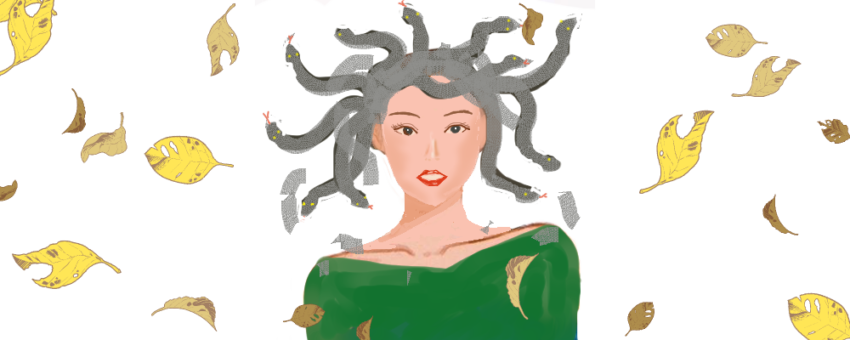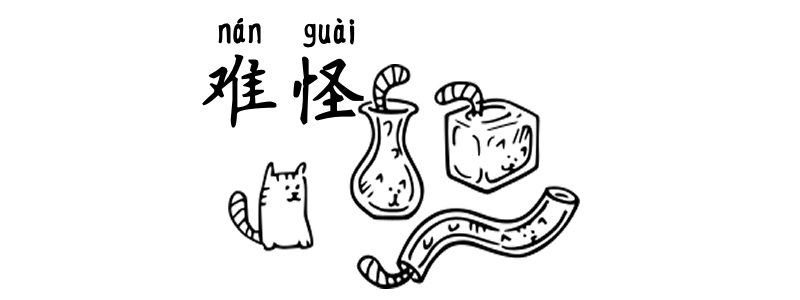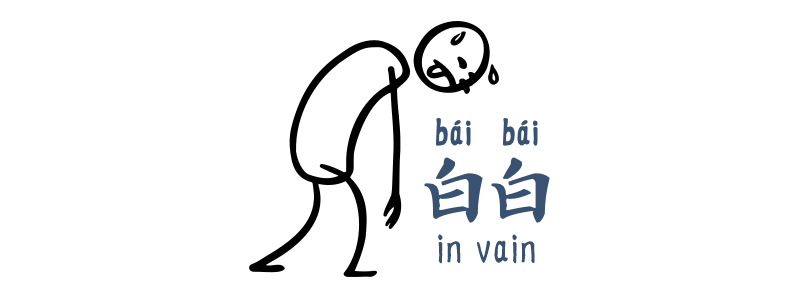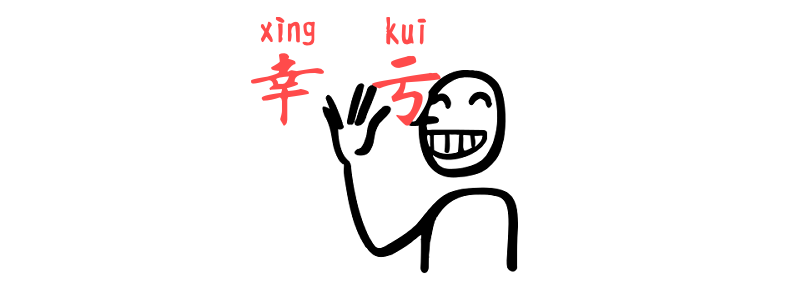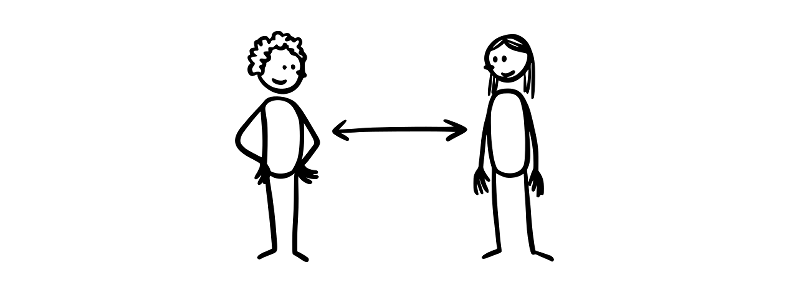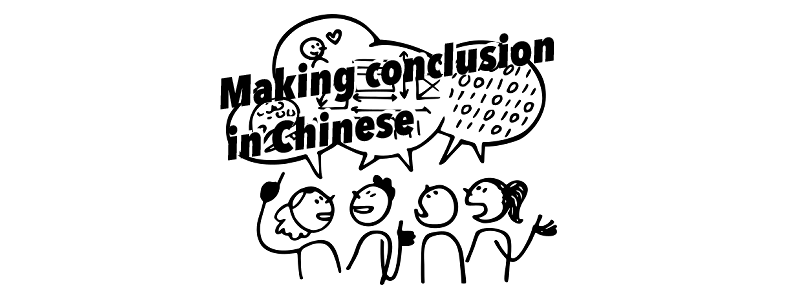“Medusa’s annoyance” is a story for HSK7+ learners. Stories I shared some are Chinese folk tales, and some are my creations. Warning most of my stories are not for kids. Listen the Complete Story Story Story Part 1 Story Part 2 Story Part 3 Story Part 4 美杜莎打開抽屜,拿出隱形眼鏡戴上,看著鏡中的自己難過得流下眼淚,頭上的蛇像是感覺到了主人的悲傷也一條條垂了下來。梅杜莎摸摸牠們自言自語的說:「你們知道嗎?故事裡的結局都是決定好的,不管是哪個版本,我的頭都會被砍下來。只要世人不改變,雅典娜和波賽頓就永遠是人生的贏家,死亡則是我唯一的結果。」 美杜莎打开抽屉,拿出隐形眼镜戴上,看着镜中的自己难过得流下眼泪,头上的蛇像是感觉到了主人的悲伤也一条条垂了下来。梅杜莎摸摸牠们自言自语的说:“你们知道吗?故事里的结局都是决定好的,不管是哪个版本,我的头都会被砍下来。只要世人不改变,雅典娜和波赛顿就永远是人生的赢家,死亡则是我唯一的结果。” Pinyin Měidùshā dǎkāi chōutì, ná chū yǐnxíng yǎnjìng dài shàng, kànzhe…
Category: HSK 7~9
Story – Medusa’s annoyance 3
“Medusa’s annoyance” is a story for HSK7+ learners. Stories I shared some are Chinese folk tales, and some are my creations. Warning most of my stories are not for kids. Listen the Complete Story Story Story Part 1 Story Part 2 Story Part 3 Story Part 4 「你說這什麼話!你眼睛不舒服跟我可能被石化哪個更嚴重!總之你快點把隱形眼鏡戴上,去清廁所裡的頭髮啦!」說完雅典娜就生氣地離開了。 “你说这什么话!你眼睛不舒服跟我可能被石化哪个更严重!总之你快点把隐形眼镜戴上,去清厕所里的头发啦!” 说完雅典娜就生气地离开了。 這世界為什麼總是這樣呢?外貌好像決定了一切,雅典娜有著白皙的皮膚、金色柔軟的頭髮,所以被稱為女神,她所做的一切都是好的,都是被認同的;再看看被稱為女妖的自己,明明不斷地委屈自己,明明不斷地忍耐著,卻還是被人討厭,被世界厭惡。回想當初波賽頓(Poseidon)的事件,自己明明是個受害者,卻成為被處罰的人,真正的加害者卻可以繼續在世界上耀眼的生活。 这世界为什么总是这样呢?外貌好像决定了一切,雅典娜有着白皙的皮肤、金色柔软的头发,所以被称为女神,她所做的一切都是好的,都是被认同的;再看看被称为女妖的自己,明明不断地委屈自己,明明不断地忍耐着,却还是被人讨厌,被世界厌恶。回想当初波赛顿(Poseidon)的事件,自己明明是个受害者,却成为被处罚的人,真正的加害者却可以继续在世界上耀眼的生活。 Pinyin `Nǐ shuō zhè shénme huà! Nǐ yǎnjīng bù…
Story – Medusa’s annoyance 2
“Medusa’s annoyance” is a story for HSK7+ learners. Stories I shared some are Chinese folk tales, and some are my creations. Warning most of my stories are not for kids. Listen the Complete Story Story Story Part 1 Story Part 2 Story Part 3 Story Part 4 「美杜莎!!」房門外傳來室友雅典娜(Athena)的聲音。「浴室裡有蛇!!我說過了你洗完頭一定要打掃乾淨!」 “妳不要进来!” 美杜莎吓了一跳,赶快用手盖住自己的眼睛喊道 “我已经把隐形眼镜拿掉了,所以不要进来!” 「妳不要進來!」美杜莎嚇了一跳,趕快用手蓋住自己的眼睛喊道。「我已經把隱形眼鏡拿掉了,所以不要進來!」 门外的雅典娜收回了门把上的手,生气地说 :“你为什么现在就摘隐形眼镜,你难道不知道你的眼睛很危险吗?如果别人看到后被你石化怎么办啊!” 門外的雅典娜收回了門把上的手,生氣地說:“你為什麼現在就摘隱形眼鏡,你難道不知道你的眼睛很危險嗎?如果別人看到後被你石化怎麼辦啊!」 门外的雅典娜收回了门把上的手,生气地说:“你为什么现在就摘隐形眼镜,你难道不知道你的眼睛很危险吗?如果别人看到后被你石化怎么办啊!” 啊!煩死了!「我戴了一天的眼鏡,眼睛真的很乾很不舒服,而且我是在我的房間又沒有出去!」 啊!烦死了!“我戴了一天的眼镜,眼睛真的很干很不舒服,而且我是在我的房间又没有出去!” Pinyin Měidùshā wúnài de pāile…
No wonder in Chinese – nánguài & guàibude
Grammar point: Both 難难怪 nánguài and 怪不得 guàibùdébude mean “no wonder” or “it’s no surprise.” It is used to express realization or understanding of why something happens, often after discovering new information or reasoning behind it. It can also convey agreement with a logical conclusion. Structure 難难怪 nánguài + Observation + 原來来 yuánlái (是 shì) + The…
白白 báibái
Grammar Point: 白白 báibái and 白 bái basically share the same meaning. It means to do an action “in vain.” The slight difference is that 白白 báibái is more negative. It emphasizes that the action is a wasted effort. Structure 白白 + Verb + 了 As you know, Chinese prefers even syllables, so unlike 白…
偏偏 piānpiān
Grammar Point: 偏偏 piānpiān is a Chinese expression that is usually used to express a sense of frustration or disappointment. It is often used to describe a situation where something goes wrong or doesn’t turn out as expected, especially when one had hoped for a different outcome. Structure Fact + 偏偏 piānpiān + Unexpected Situation…
幸虧/幸亏 xìngkuī
幸虧/幸亏 xìngkuī grammar幸虧/幸亏 xìngkuī is an adverb that introduces a situation where due to something happening, a negative result has been averted. It’s commonly translated into luckily or fortunately in English. 要不然 yàobùrán or 否則/否则 fǒuzé usually follows. Structure 幸虧/幸亏 + Lucky Incident,要不然 + Negative Result 要不然 yàobùrán means otherwise. 我不知道要坐這麼久的船,幸虧我已經吃了暈車藥,要不然我一定會吐我不知道要坐这么久的船,幸亏我已经吃了晕车药,要不然我一定会吐Wǒ bù zhīdào yào zuò zhème…
趁 chèn grammar
The preposition 趁 chèn refers to seizing an opportune moment for the implementation of an action. It is followed by a short phrase or a clause explaining the situation the person seeks to take advantage of. And this grammar of 趁 chèn is usually not natural to be translated into English. Structure 趁 + noun phrase…
Advanced Comparisons 2
Grammar Point:As you may already know, comparisons in Chinese are typically expressed using 比 bǐ. However, in this article, we’ll explore how to express preferences in Chinese—similar to saying “would rather… than…” in English. Additionally, we’ll introduce three more formal ways to construct comparison sentences in Chinese. Structure – Showing Preference 與与其 + Option A,(S) +…
Making Conclusion in Chinese
In this article, we are going to talk about some phases to make a good conclusion in Chinese. A clear conclusion can change a reader’s or listener’s mind when they reach the end of your speech. Especially in Chinese, we tend to save the most important information in our last sentence. Now let’s learn some…
